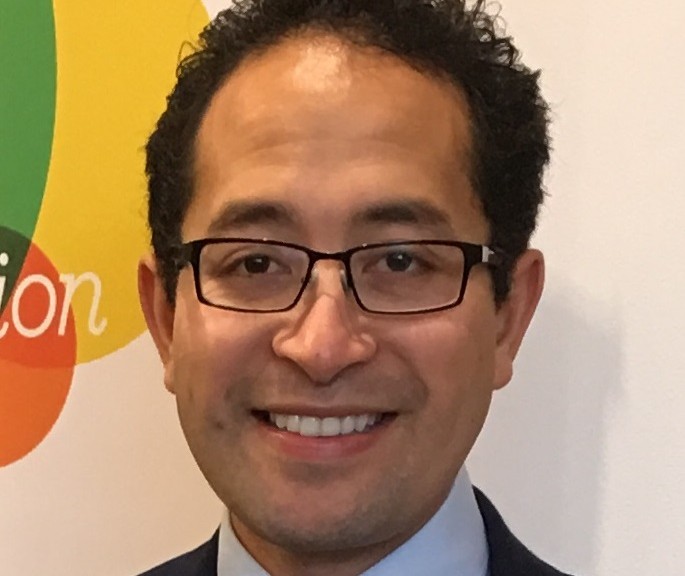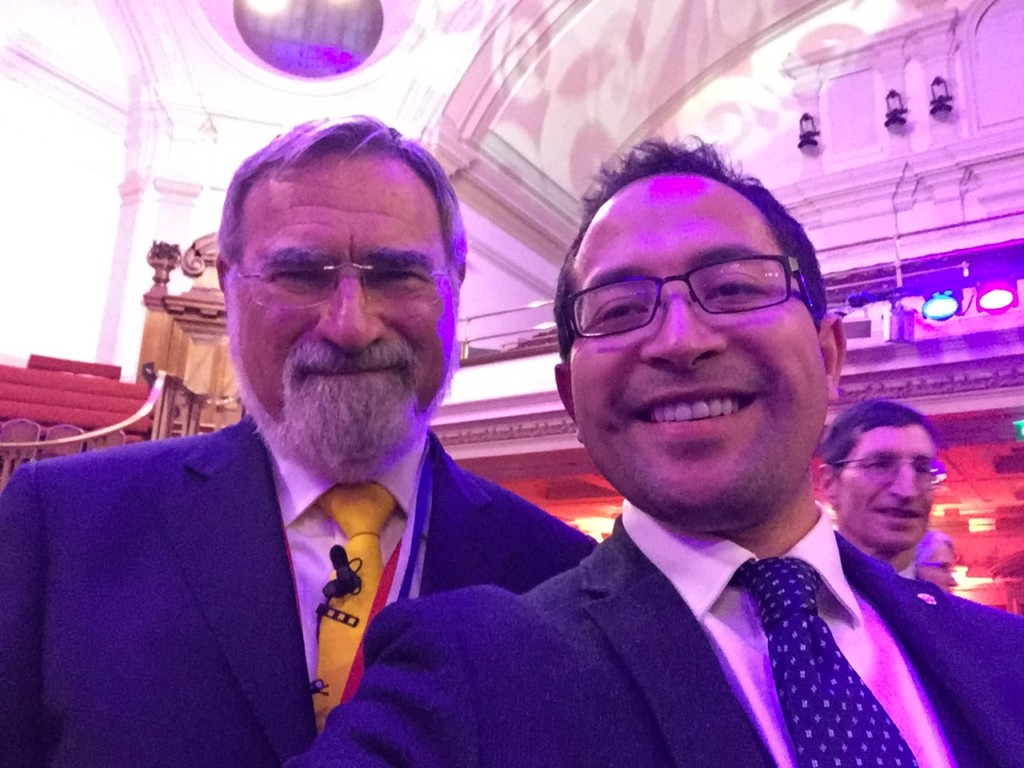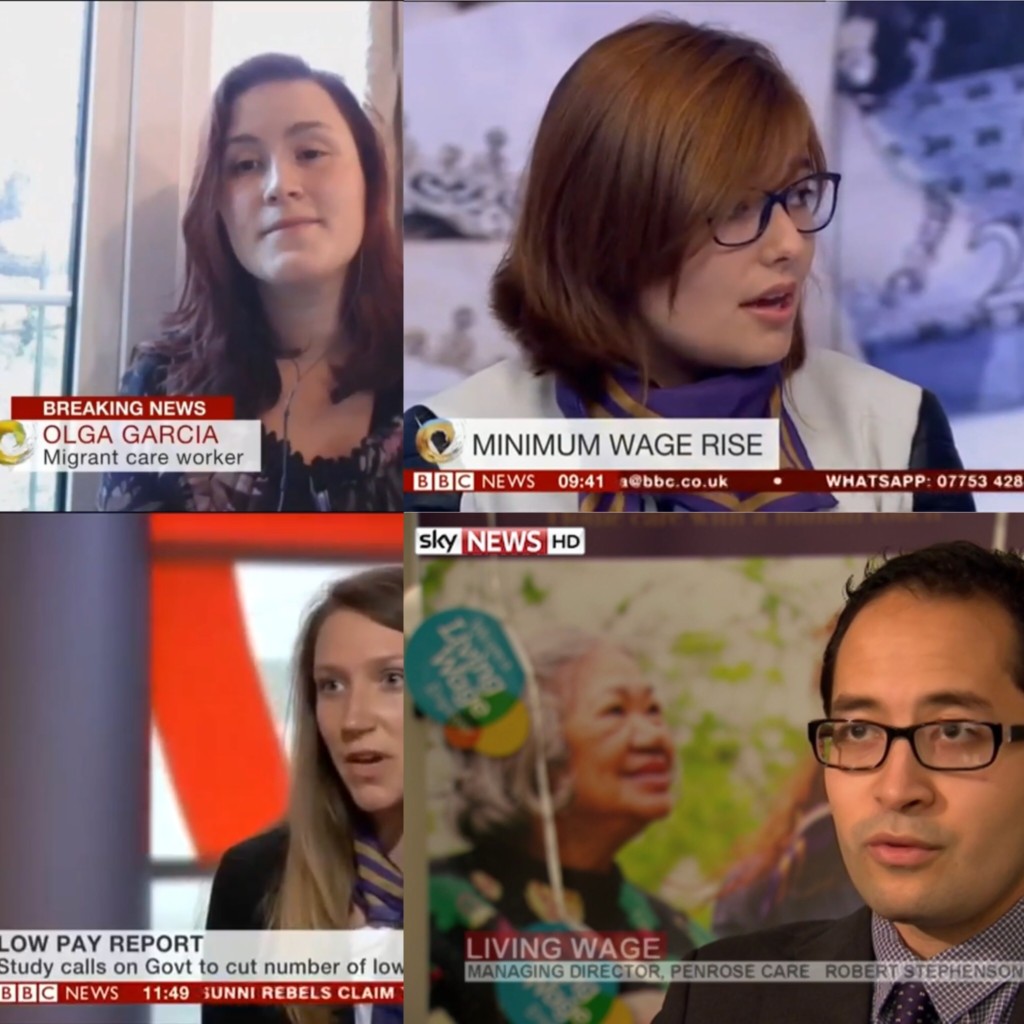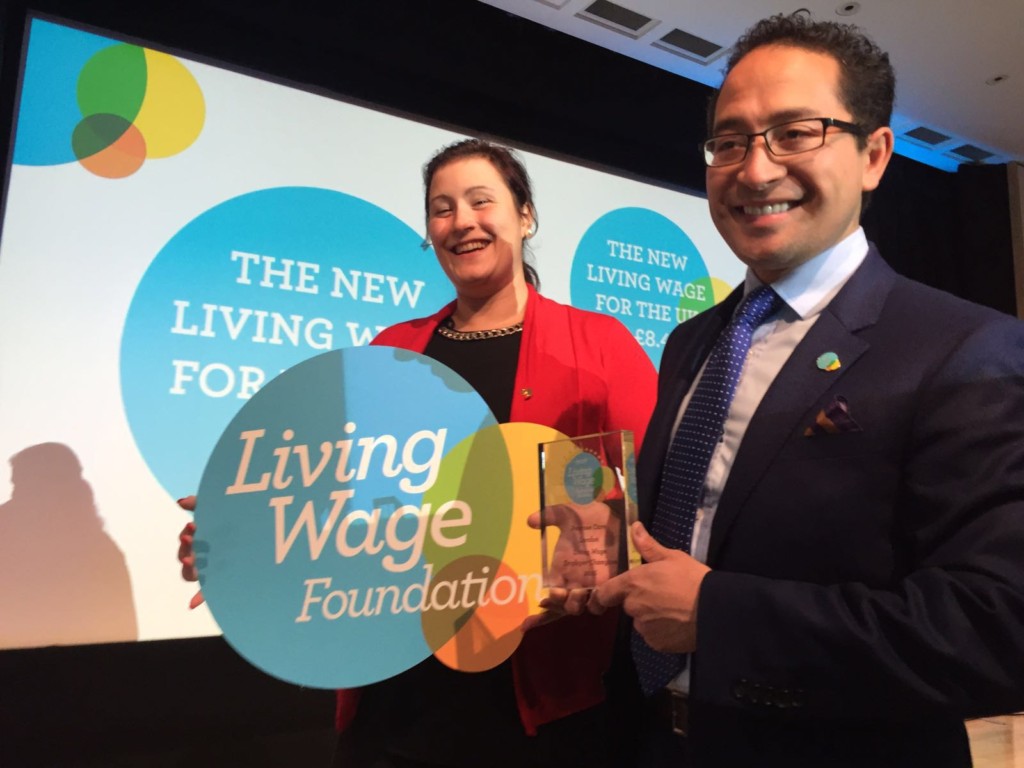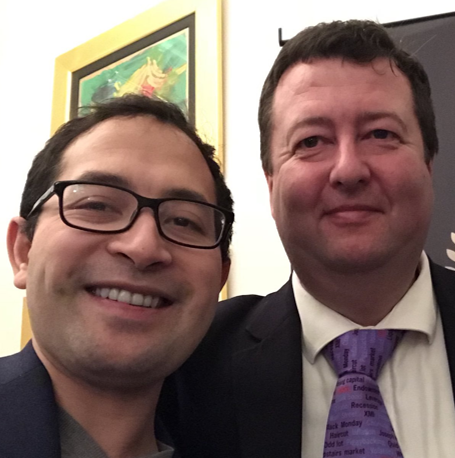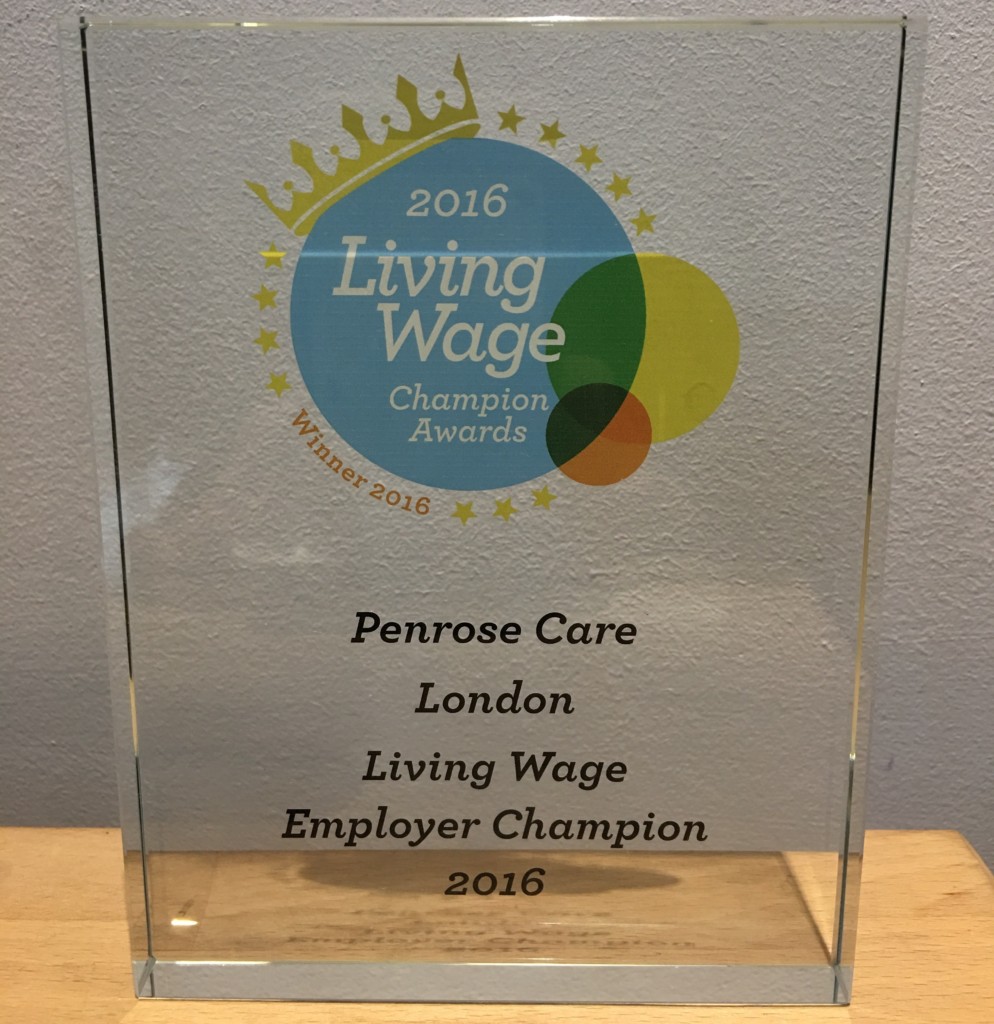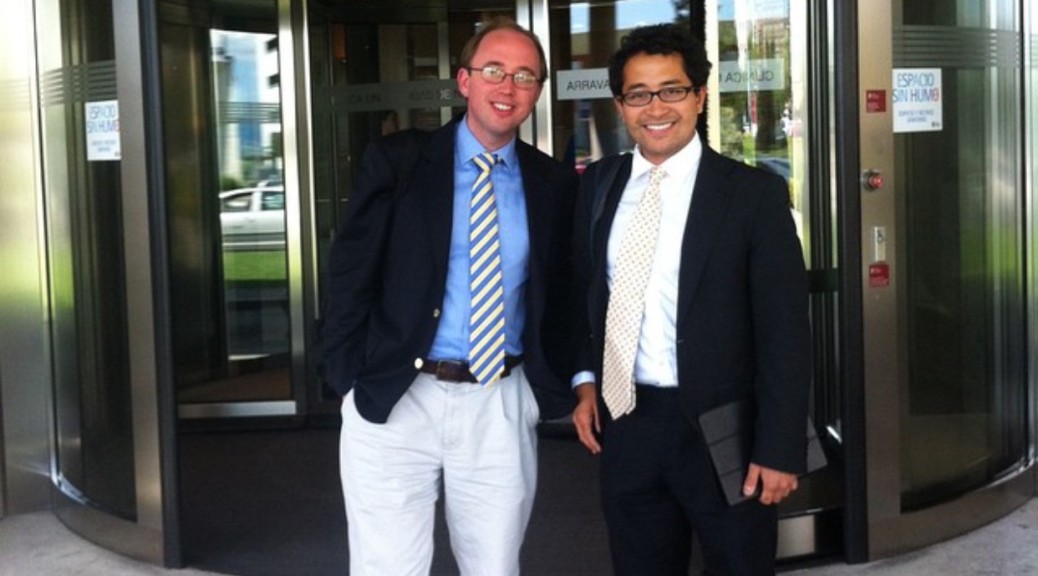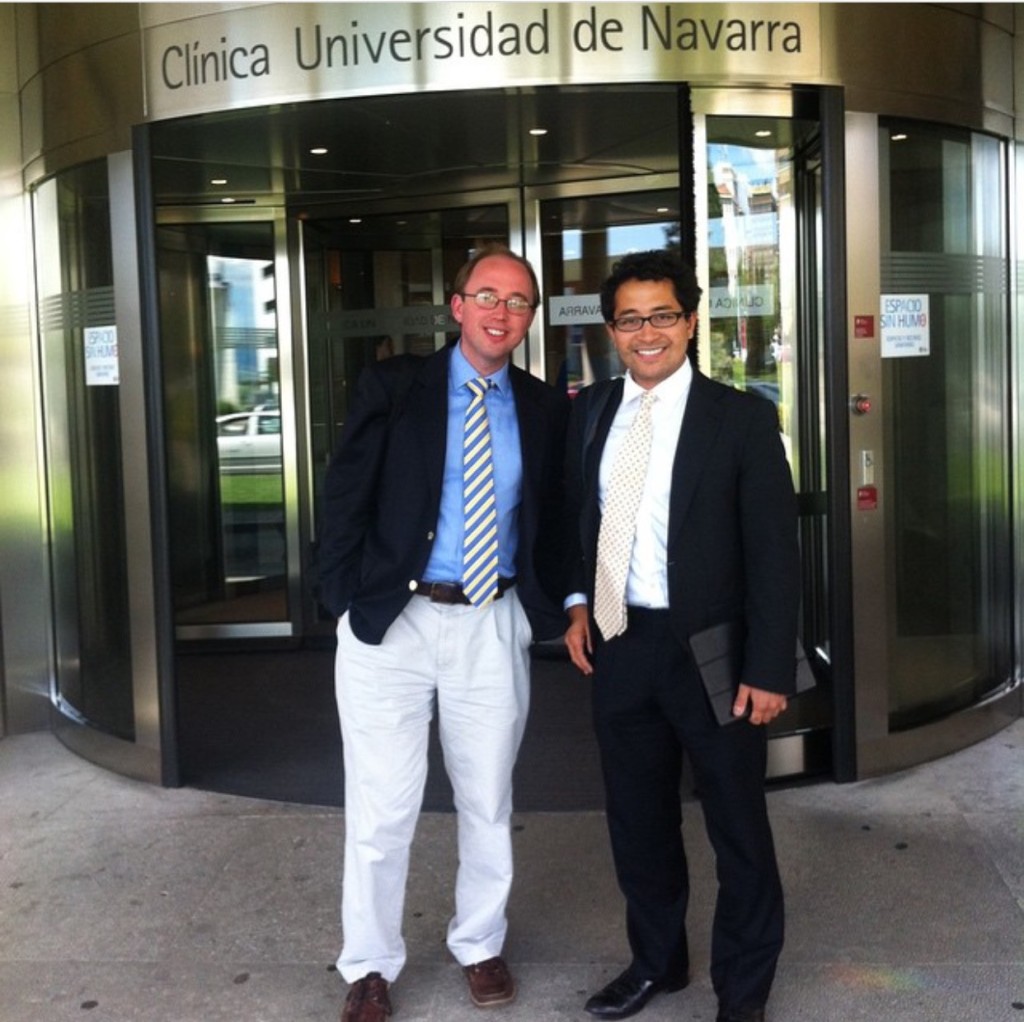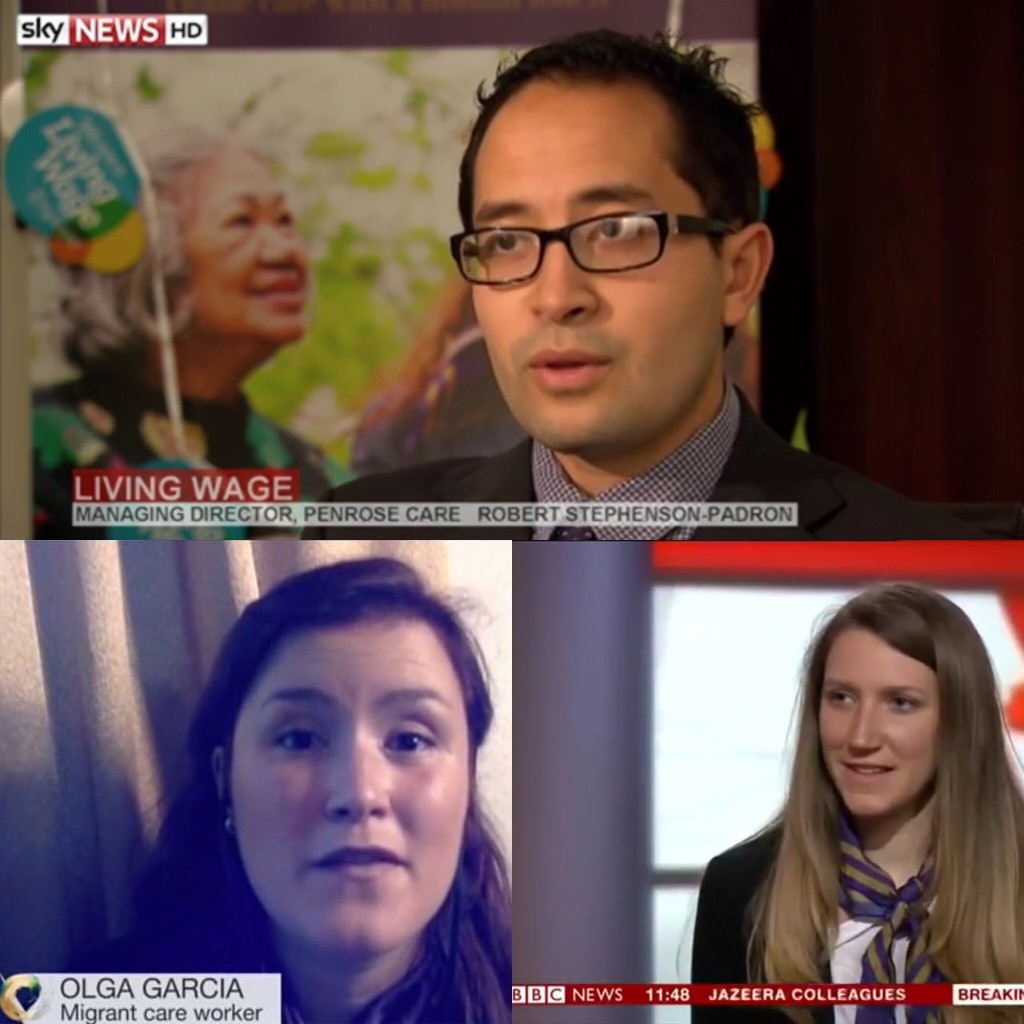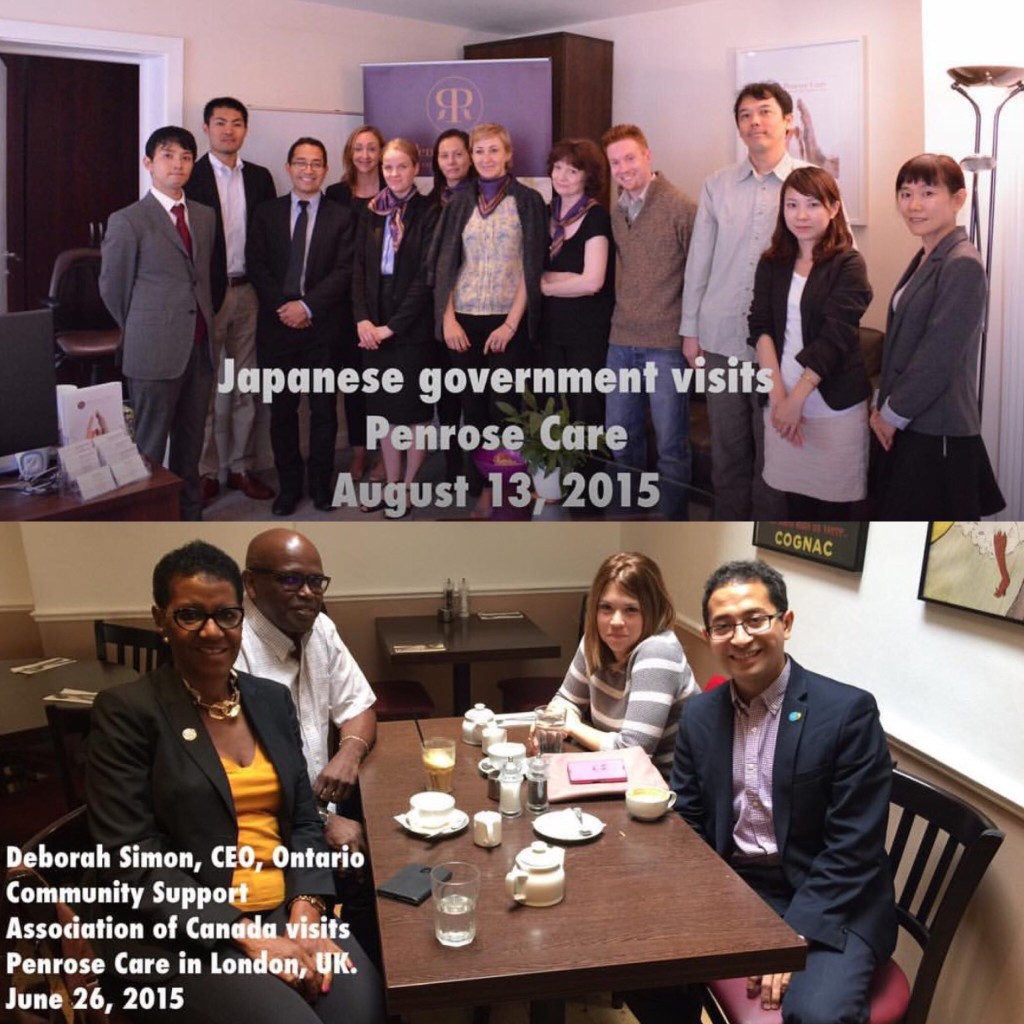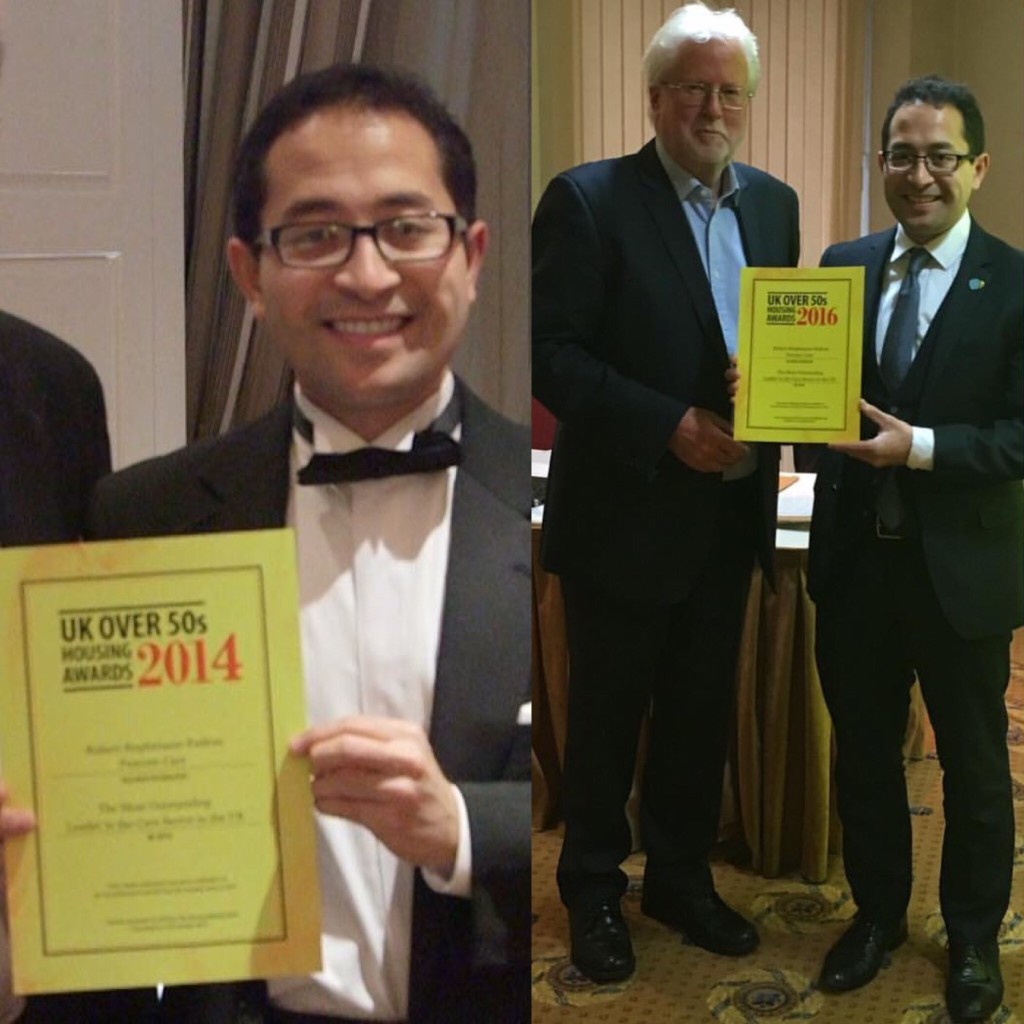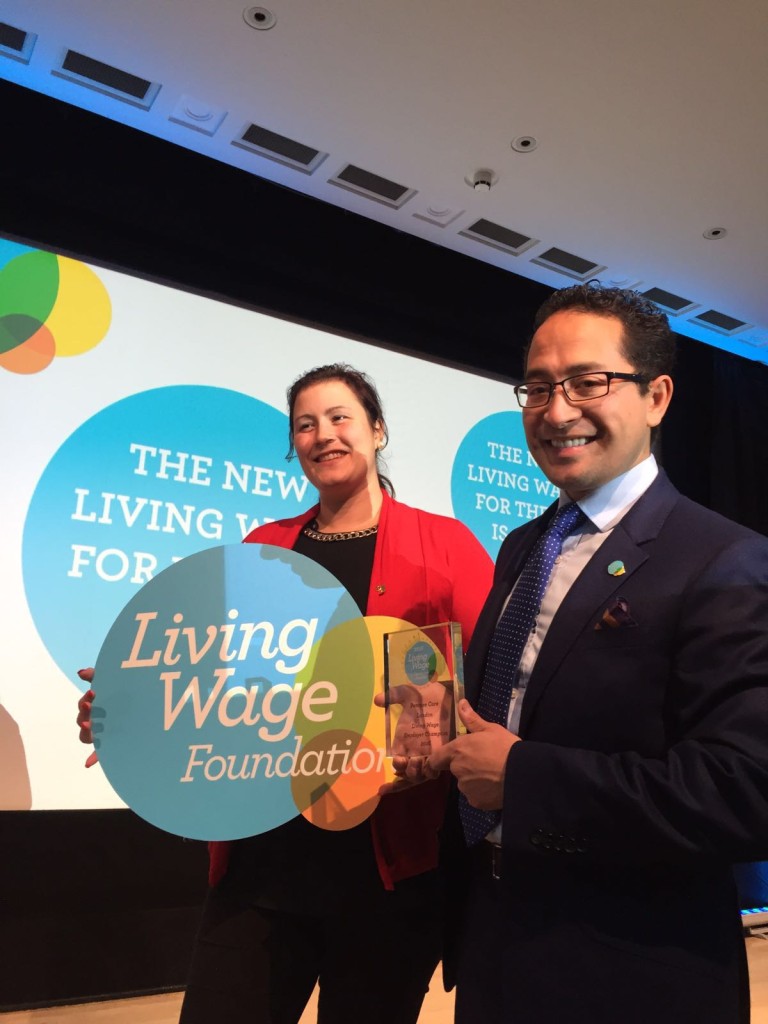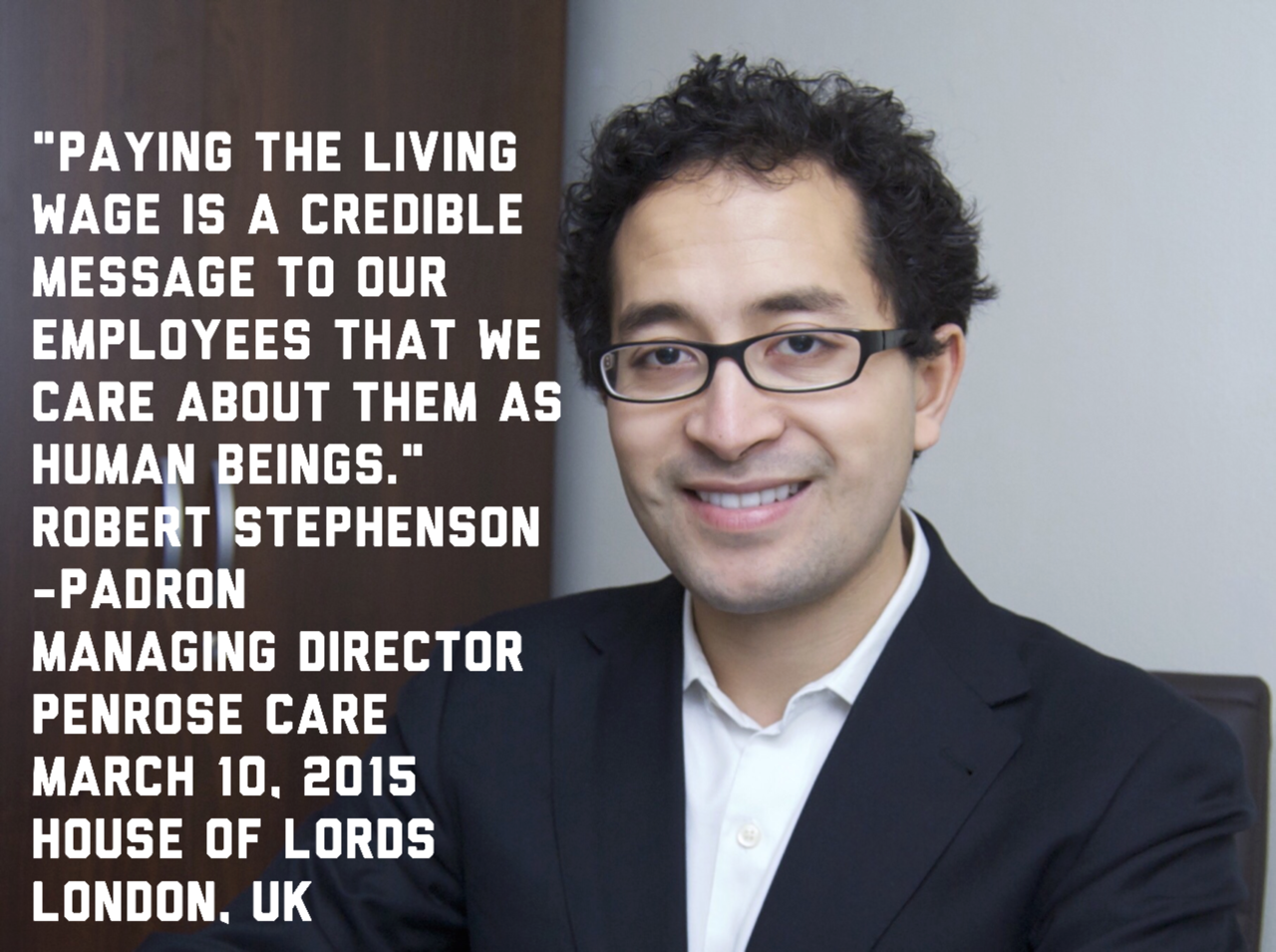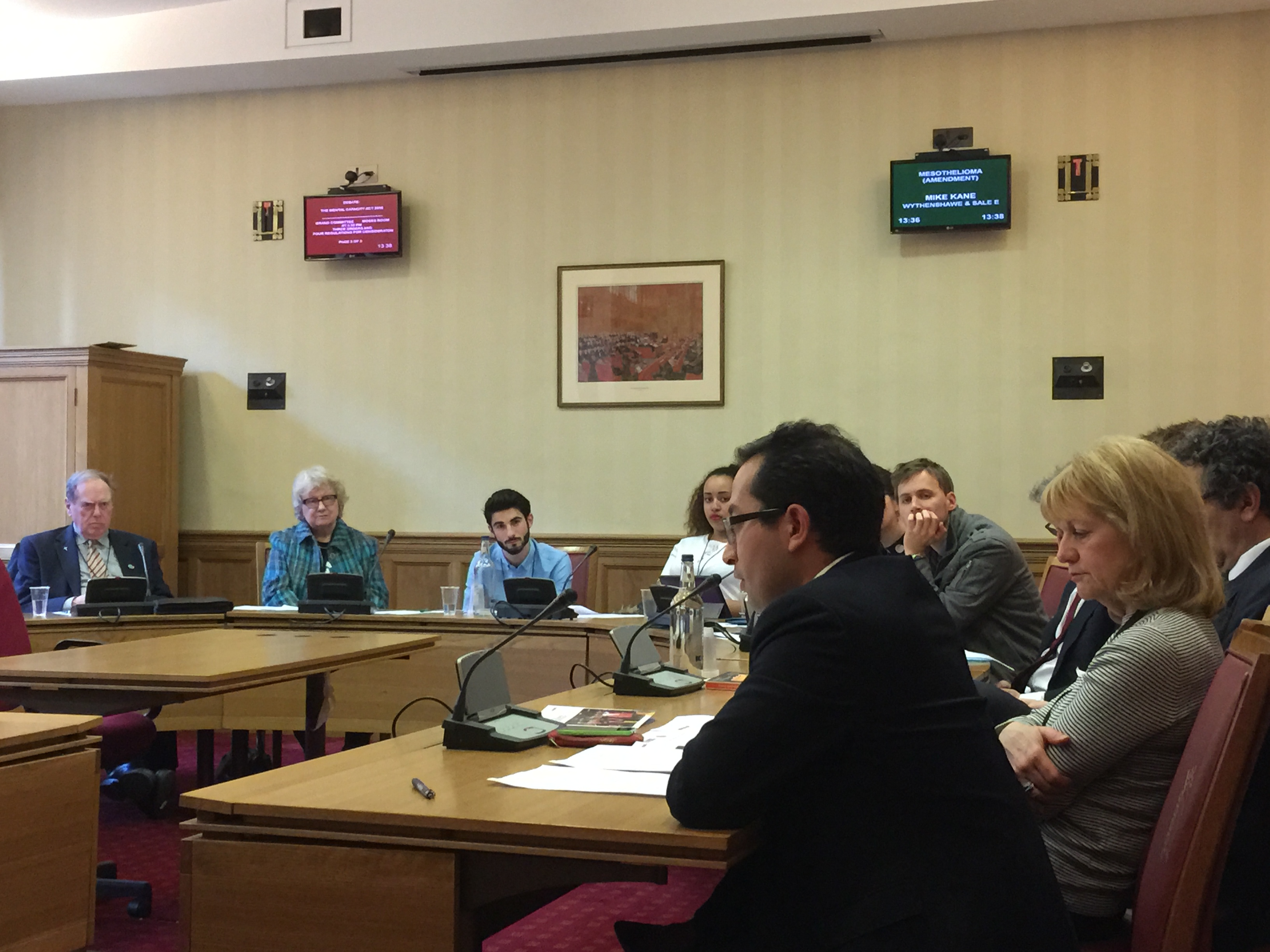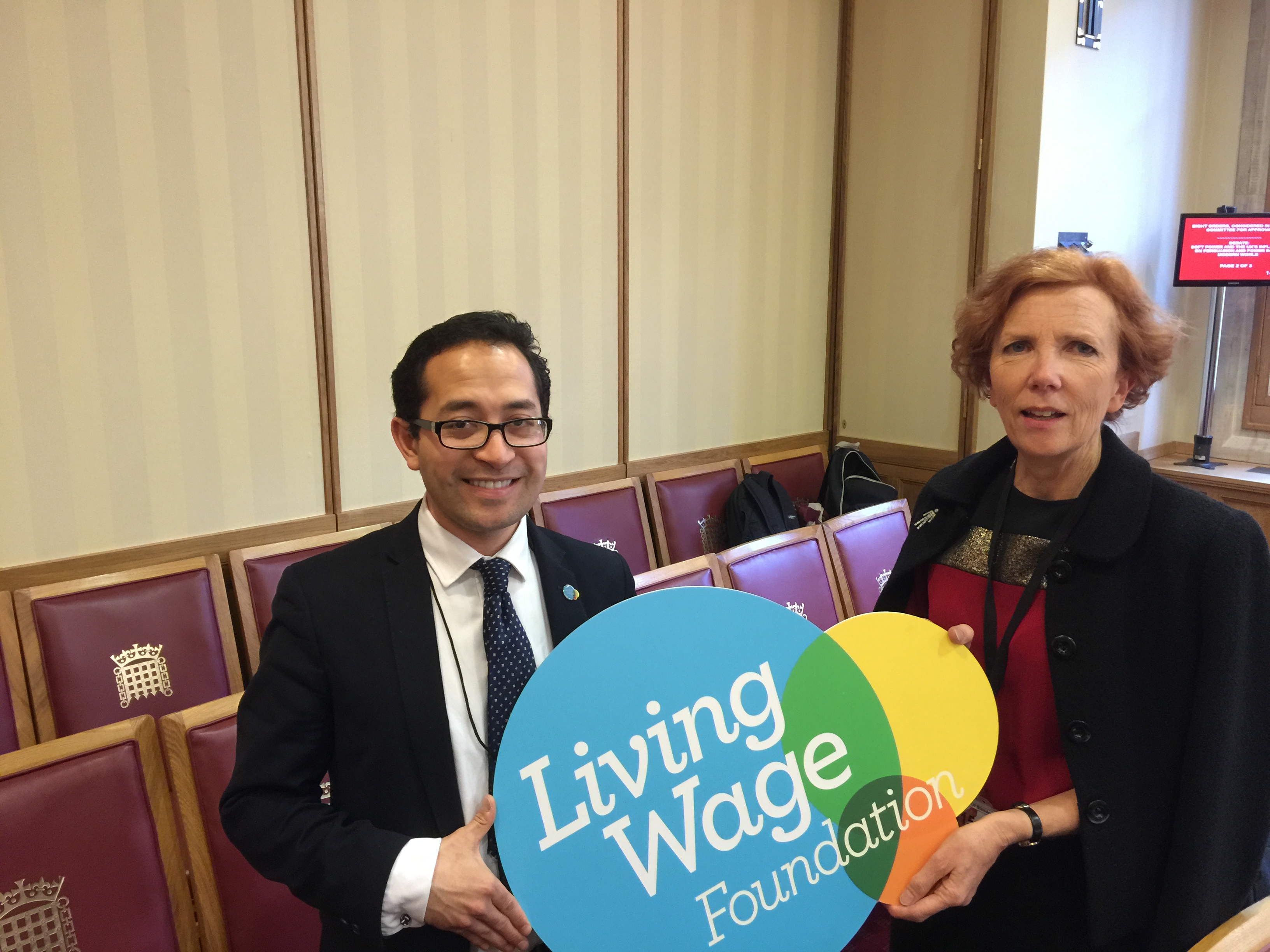“We don’t put our heroes on pedestals just to remember them. We raise them up because we want to emulate their virtues.” – Megan McCain
By Robert Stephenson-Padron
I am writing to you from London in the United Kingdom, over 5,000 miles from my home town in California in the United States.
The recent passing of American statesman John McCain and retirement of British social justice champion Neil Jameson reminded me that the values we share when we are at our best transcend this vast distance.
Neil Jameson and John McCain are two heroes of the modern era from two different lands very far from each other, who I expect may have never met each other, but where I find so many commonalities in their values.
These are my reflections on these values and what I believe we can learn from them.
Who is Neil Jameson and who was John McCain?
Neil Jameson has dedicated his life to others through civil society organising. After first working as a social worker, Mr. Jameson traveled to America to learn the skills of community organising from the Industrial Areas Foundation. Returning to Britain, Mr. Jameson founded Citizens UK and has been promoting community organising in the UK since 1989. Citizens UK empowers foundational groups in British society such as synagogues, churches, mosque and schools by convincing them to work together to advance positive change in their communities.
Neil Jameson is the best form of warrior you find in a democracy. A patient builder of fruitful endeavours – Neil Jameson is the unheralded father of the UK’s modern Living Wage movement which since its inception in the early 2000s has positively impacted over 100,000 low-wage workers in Britain. (1) A collaborative fighter against injustice – Neil Jameson united British civil society against usurious loan sharks and on his last day at the helm of Citizens UK, was able to bid good riddance to Britain’s largest payday lender. (2)
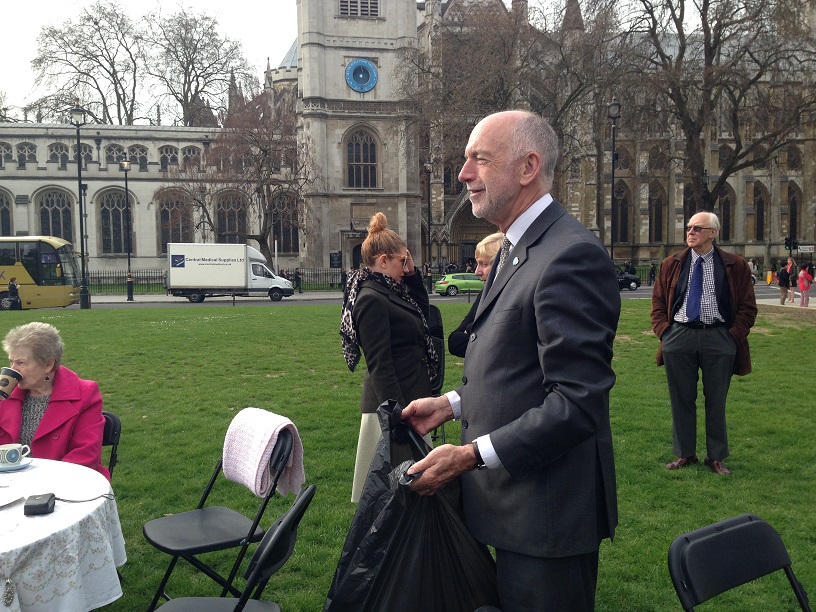
Neil Jameson on rubbish duty at Care in the Square, Parliament Square, London, UK on March 31, 2014.
John McCain dedicated his life to the United States of America and its revolutionary ideals. He served as a US Navy pilot during the Vietnam War, survived being a tortured captive of Communist forces in Vietnam, dedicated his life to legislative service first in the US House of Representatives (1983-1987) and then the US Senate (from 1987); was a nominee for US president in 2008; and while a legislator helped freedom aspiring democrats around the world as chair of the International Republican Institute from 1993 to 2018.
John McCain was the best form of warrior you find in a democracy. A volunteer who risk physical harm or death to defend the innocent – John McCain risked his life to fight for strangers in a far off land against autocracy. A peacemaker and uniter – John McCain helped with reconciliation between the United States and Vietnam and he led a legislative career that recognised that his fellow democrats in the opposing political party were fellow countrymen, not foes.

Then U.S. Navy Commander John S. McCain III visiting an orphanage that cares for youngsters fathered by American G.I.s. in Saigon, Vietnam, on Oct. 30, 1974. McCain, a son of the admiral who commanded U.S. forces in the Pacific at the height of the Vietnam War, was shot down over Hanoi and spent several years as a prisoner of war (POW) from October 26, 1967 to March 14, 1973. (AP Photo/Dang Van Phuoc).
Both are and were dedicated family men.
Both men, empowered by selfless love, dedicated their lives to humble service and democracy. Both remind us of the values and ideals of the Trans-Atlantic bond that unite us across a vast ocean.
These heroes remind us of the values we share across the Atlantic
Journalist Madeline Schwartz this week, writing in the Guardian, asked, “if shared values and norms are the foundation of the liberal world order, what are they?” (3) Sen. McCain had the answer, summarising our Trans-Atlantic values by asserting that,
“We Stand For:
Truth against falsehood,
Freedom against tyranny,
Right against injustice,
Hope against despair.” (4)
As Sir Winston Churchill asserted 72 years ago when he articulated Trans-Atlantic values to an American audience as British Prime Minister: “Here is the message of the British and American peoples to mankind. Let us preach what we practise – let us practise what we preach.” (5)
Sen. McCain lived these values. Neil Jameson continues to live them. Like the true heroes they are, their examples inspire the rest of us to want to live these values.
The heroism of Neil Jameson and John McCain reminded us of the beauty of our values
When I saw the universality of Mr. Jameson’s retirement celebration – people across the faiths, young and old – I was convinced that these values are universal. Our values are universal because they reflect the best virtues of humanity and there is infinite beauty in virtue, “as virtue is the beauty of the soul.” (6)
“We are blessed and are a blessing to humanity when we uphold and advance those ideals at home and in the world,” said John McCain in his final word to the American people, and in living these values, “helped liberate more people from tyranny and poverty than ever before in history.” (7)
My work in caring for the elderly keeps me close to the memories of past tyrannies. An elderly woman I know fled the Nazi terrors almost 80 years ago. Earlier this year, she told me: “There is nothing beautiful in the news today. There is no hope for humanity [in the portrayal of the world in the news]”. Her experiences of some of the worst horrors of history give credibility to her appraisal of our current age and I found it haunting.
The uplifting grace of Mr. Jameson’s retirement celebration, which I attended in person, and the memorial of Sen. McCain, which I observed from afar provided a reprieve from the dark world depicted by this refugee of the Nazi terrors. I saw that in the midst of so much darkness, heroism illuminates that which is beautiful.
How does one describe this beauty in words? Dr. Kaneeez Shaid, Chair of Citizens UK, said (audio link) at Mr. Jameson’s retirement celebration, “how do you sum up a man like this?” I feel she did not fail when she quoted the 13th century Sufi mystic, Rumi:
“You are not just a drop in the ocean but you are the world’s ocean in just one drop.” (8)
Wow.
Reflecting on this beauty I believe there are two core lessons I learned from attending Neil Jameson’s retirement celebration and watching from afar memorial remembrances of John McCain: 1) The centrality of love in their humble service, and 2) That true love led them to leave no one behind.
Lesson 1: The centrality of love in humble service
What is it that drives a true hero – a hero that endures countless hardship in the service to others? I believe John McCain’s daughter, Megan McCain, gave us the answer when she eulogised her father saying that “John McCain was defined by love.” (9) Love was the source of John McCain’s selfless and enduring service, which can best be described as humble service – service purified by “a value set that was neither selfish nor self-serving.” (10) In his retirement speech, Neil Jameson said that humility is a blessing. I would add then that humble service is a blessing to others. Humble service is an expression of selfless love that provides the courage for a person to provide extraordinary levels of heroism, including that of laying down their life for another. (11)
The idea that love is purifying is a foundational and enduring notion within our cultural heritage. Indeed, Paul of Tarsus wrote that,
“Love is patient, love is kind. It does not envy, it does not boast, it is not proud. It does not dishonour others, it is not self-seeking, it is not easily angered, it keeps no record of wrongs. Love does not delight in evil but rejoices with the truth. It always protects, always trusts, always hopes, always perseveres.” (12)
Thousands of years later, John McCain and Neil Jameson exemplify the truth in Paul’s ancient wisdom. It is this form of selfless love which helps explain why John McCain refused an early release from captivity during the Vietnam War until his fellow prisoners of war were also released – a decision that put him through cruel torture that left him with lifelong physical impairments. (13) It is this form of selfless love which explains why such a giant of brilliance like Neil Jameson dedicated his life to a cause of the poor in East London and around the UK – a cause requiring enormous sweat but modest material gain.
I have also observed the truth of this link in my own work in care for the elderly. Although we rarely mention it by name, love is the true power of my organisation and my colleagues. This truth was brought to my attention when a clinician and family member of an elderly person we support told me, “I am genuinely impressed by how careful and comprehensive [your organisation] is… in trying to care for her and love her (yes, that’s the word).” We do not talk speak often in our society about how love can empower our work but we should.
There is an especially important human emotion that love purifies: anger. Anger that boils in us from being wronged or seeing others wronged can destroy, do nothing or create. In his retirement speech, Neil Jameson referred to two forms of anger and also warned against timidity:
- “Angry hostility” (known as “hot anger” in the parlance of community organising) which Mr. Jameson said is a “mistake, it’s unhealthy, it doesn’t lead to relationships.” This is an anger that destroys. I would put anger that does nothing also in the destructive side because if a person does nothing in the face of evil, then that evil is likely to remain unabated and may increase. “Timidity is a problem, we have to be more courageous but humble with our wits,” Neil Jameson said in his retirement speech. And,
- “Cold anger”, a concept of American community organising pioneer Saul Alinksy. Cold anger is reflective anger purified by building character within oneself which leads people to work together, to build relationships and to muster the courage and persistence to fight against injustice and create a better world. (14)
It was cold anger which led to the Magna Carta, cold anger which led to the American Declaration of Independence, cold anger which led to VE Day and V-J Day, cold anger that led to the Washington Treaty, cold anger which has driven the expansion of democracy – “the best system of government” (15) – across the world. It is cold anger which drives people of goodwill to continue fighting against injustice wherever they find it.
Anger purified by love – as it is love that directs pain and suffering to the build-up of character – drives the courage of our heroes. This must be why Megan McCain said that her father John McCain had a “famous temper” but was also “defined by love”. (9) I believe it is love that likely illuminated to John McCain that “evil is a real and active force in human affairs and that it is our duty to oppose it as best we can.” (16)
It is selfless love that has led my organisation to herald decent work for social care workers within and cold anger which has compelled us to combat widespread labour exploitation of social care workers outside our organisation.
Lesson 2: True love leaves no one behind
In 1893, the Cuban writer José Martí reflected that: “Mankind is composed of two sorts of men – those who love and create and those who hate and destroy.” (17) I believe that this is probably roughly true but caution an overly simplistic interpretation. I would say that a person can, in an unbalanced pursuit to create, start at the first and end in the later. For instance, I would consider it a failure if a person created a vast business empire but forgets their spouse and has children that are effectively unknown to them. They are then in the later camp because they are destroying one good thing while building another thing.
I expect this reality is why for instance, the Franciscan Friars who honoured Mr. Jameson at his retirement celebration have foregone families born of intimacy for families born of spirituality, so they can sacrifice themselves almost completely to the service of strangers. However, those of us who are not friars cannot do this. And I do see in the world today, mired by unfulfilling pursuits for material comforts, a tendency to sacrifice those closer to us in a pursuit for the other. This is not however, genuine sacrifice but more likely a manifestation of selfishness.
In society today, service to strangers gives you a brownie button – societal recognition – whereas service behind closed doors, say to one’s family, gives you almost no outside recognition. The later however is what we must learn as this is where we learn “humble service”. That is, we must serve others irrespective of praise or monetary reward. We should serve others because it is morally right and a manifestation of sacred ideals and values for which we are custodians. I believe this is in part what John McCain meant when he said we stand for “right against injustice,” and why former US Vice President Joe Biden said John McCain “could not stand the abuse of power – wherever he saw it, in whatever form, in whatever ways” (10) – as selfishness disguised as service is a perversion of humble service.
Therefore, unbalanced service to one party at the undue expense of another party is likely to turn your service into service to yourself. Your original good intentions could thus transform into one of the seven deadly sins of vain glory. This must be avoided. And it can be avoided by remembering your family, your roots. In fairly allocating our time we build humility as we learn that we cannot do everything ourselves and this pushes us to rely on others, to build relationships with others.
Positively, service to strangers in its balanced form prepares us to serve our families better. A willingness to forego the constant pursuit of more in the service of others teaches us the meaning of love and indeed, of life – to put another’s wellbeing ahead of our own. And we learn a peace in this form of service which helps us bring peace to our families. As John McCain said in his final words to the American people he loved so much, “To be connected to America’s causes — liberty, equal justice, respect for the dignity of all people — brings happiness more sublime than life’s fleeting pleasures.” (7) Neil Jameson at his retirement speech (audio link) reiterated this peace in service when he said,
“So many of us spend [our] time, and I did when I was much younger, going round and round… looking for the meaning of life and then frankly was blessed to be in a position to find a smidgen of it… it’s all about people and institutions, it’s all about head teachers, priests, rabbis and others who give their life to civil society and institutions which are so important for us to learn how to work together and be together in faith and for justice, and for a strong common good.”
Complimentarily, service to our families forges our ability to love, which further empowers our ability to serve strangers – because as noted earlier, love is purifying. The truth of this assertion is demonstrated in the family lives of Neil Jameson and John McCain. In an era where intimate relationships have become throw-away recreational activities, Mr. Jameson and Sen. McCain maintain/ed lifelong commitments to their families while at the same time dedicating their lives to the service of strangers. At Mr. Jameson’s retirement party, Mrs. Jean Jameson, Neil Jameson’s wife, highlighted (audio link) to the attendees, to my surprise indeed (!) when she said: “I’m so sorry that the staff in talking about the last thirty years missed out completely that Neil had managed to have four children, seven grandchildren, ate meals at home… played tennis and generally had a very good life-work balance.”
It should be no surprise however that the staff of Citizens UK “missed out completely” this part of Neil’s life possibly because they felt that he gave so much of himself to them that they failed to comprehend how much he was also giving to his family at home. With both parties feeling so embraced by Mr. Jameson’s service and love, we must conclude that he struck the right balance between serving one’s family and serving those outside of our families – our communities.
What is the source of this balance between serving strangers and serving our families – a balance that leaves neither behind? I believe Neil Jameson in his retirement speech possibly honed into a key source when he echoed the ancient wisdom of Memento Mori: “Focus on time because we know time is precious and that we all will die… which is why we shouldn’t waste time.” Being mindful of our mortality, that time is limited, we are likely to serve others at the most optimal allocated times so that indeed, we leave no one behind.
At Sen. McCain’s funeral, his daughter Megan McCain in her powerful eulogy said, “This love of my father for my mother was the most fierce and lasting of them all, mom. Let me tell you what love meant to John McCain and me. His love was the love of a father who mentors as much as he comforts. He was endlessly present for us.” (9)
Presence – that is how we learn to leave no one behind. Indeed, showing up is an act of love.
Therefore, if we are to learn to not leave behind strangers, shouldn’t we first learn not to leave behind those closest to us – our friends and our family? We begin by going to that baby shower. That baptism. That school play. That graduation. Remembering that anniversary. Attending that wedding. Mourning at that funeral. Remembering and being with that family at home – being with that friend in need across town. I work with the elderly and the dying. I can tell you with near certainty that these small acts of love are what will matter to you before you make that final flight.
When we receive and give love, we are better able to understand our fellow human beings. In my work in elderly care, love inspires us to do our best and to be our best.
Closing
“Those who say that we’re in a time when there are not heroes, they just don’t know where to look,” said Ronald Reagan in 1981. (18) His statement remains true today. There are heroes among us. One, John McCain, has just passed into the next world but his memory will provide inspiration to people of goodwill for generations. Another, Neil Jameson, is still with us and we are all blessed by his continued wisdom, warmth and good works.
The unity of the values of these two great men is such that there is a powerful complementarity in some of their parting wisdom. In his final words to the American people, John McCain said, “Our identities and sense of worth are not circumscribed but enlarged by serving good causes bigger than ourselves.” (7) And in speaking of good causes in his retirement speech, Neil Jameson said, “Never give up… this is a holy and a religious pursuit that we have… to persuade people to work together.” These messages coalesce into a powerful message: never give up in the good causes you serve.
Thank you John McCain, my fellow American. Please continue fighting for the lowly up from Heaven. Thank you Neil Jameson, my fellow British democrat. Thank you for being a hero. And thank you both for reminding us of how strongly united the people of America and the United Kingdom are in the values we share when we are at our best.
Robert Stephenson-Padron, aged 33, is the managing director of Penrose Care. Since age 15, he has been active in a variety of civic causes including affordable housing, the Living Wage and improved working conditions for social care workers.
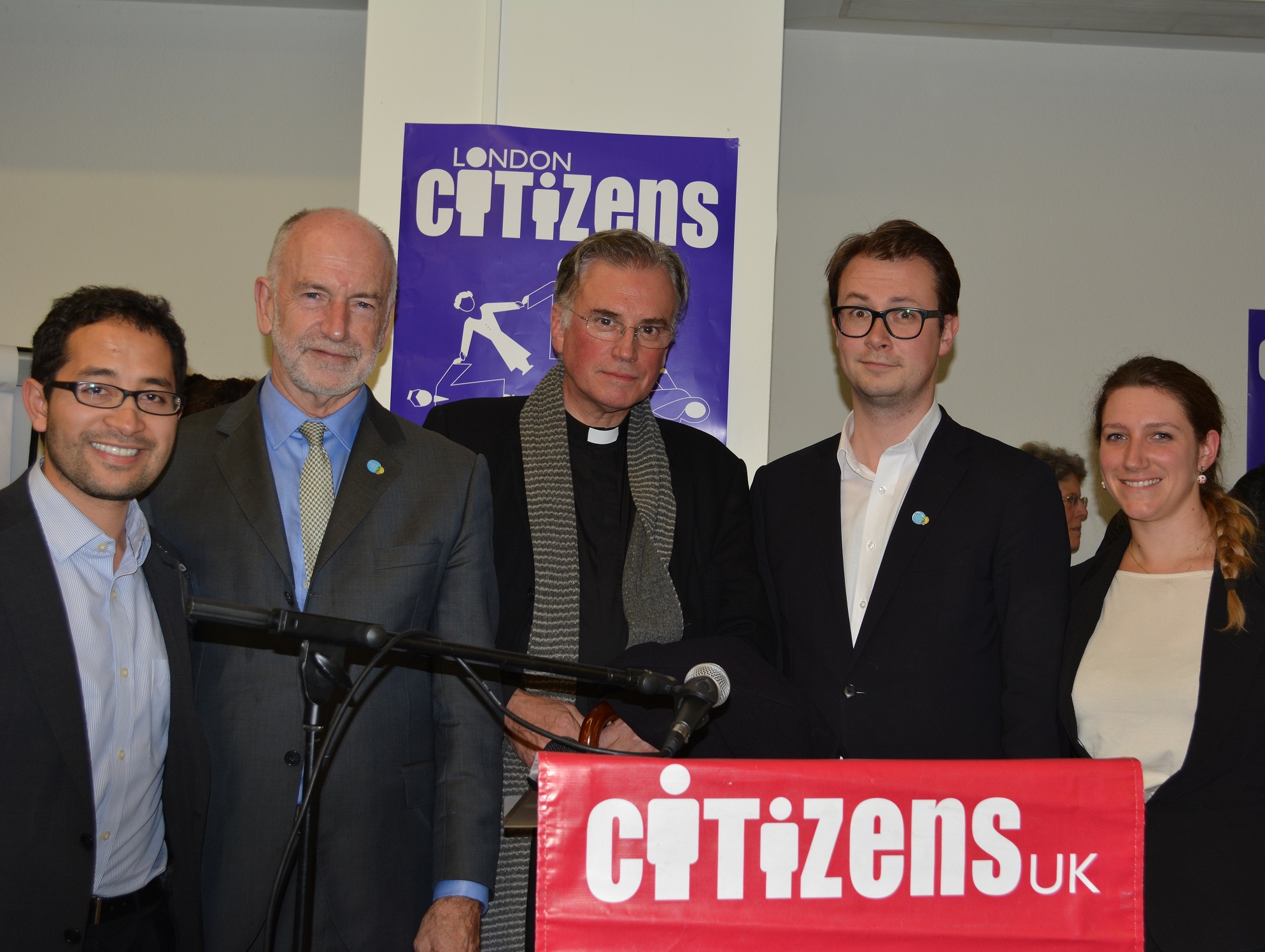
Photo of the Citizens UK event where Penrose Care managing director Robert Stephenson-Padron met Neil Jameson at Friends House, London, UK on October 15, 2013.
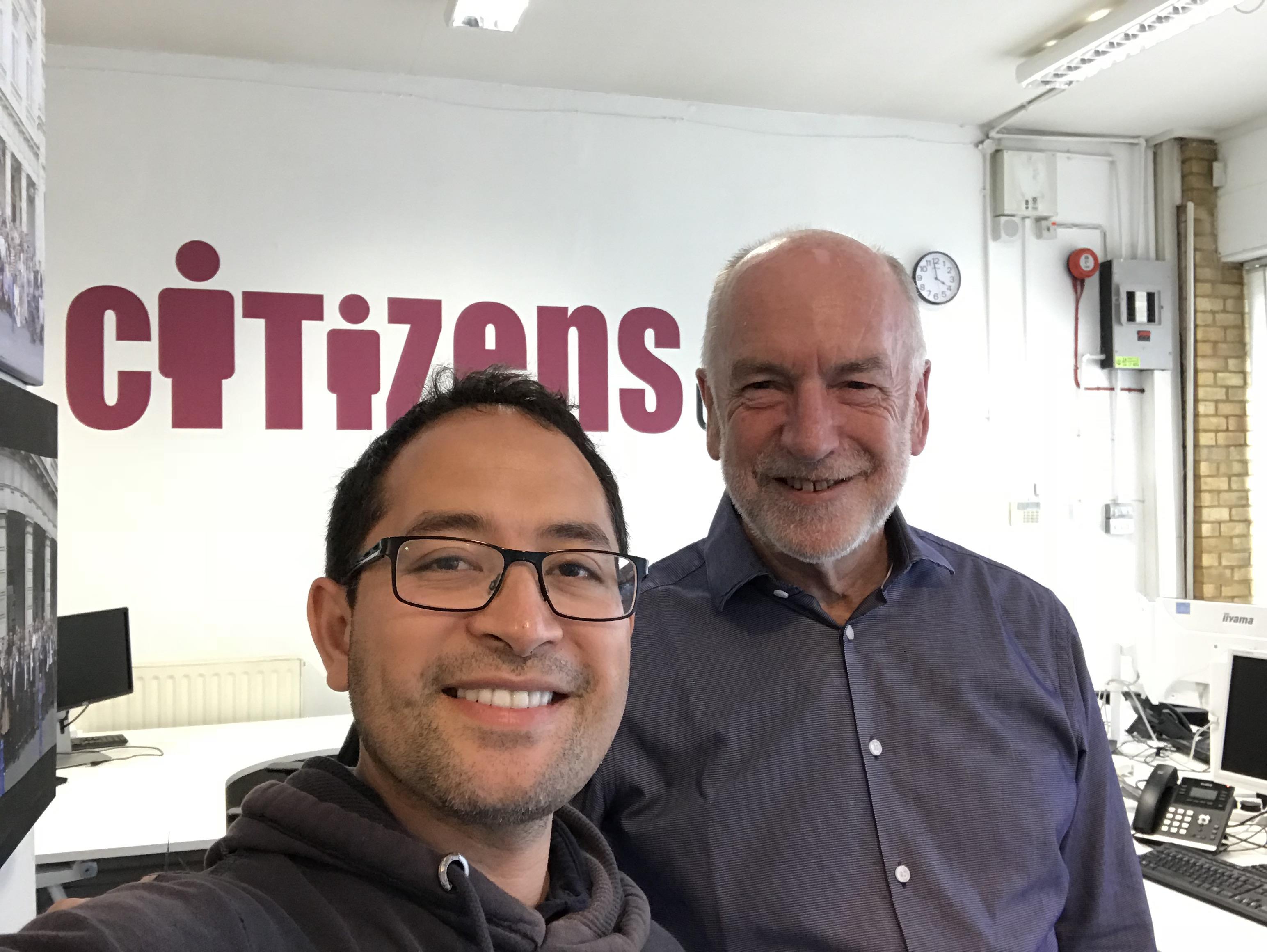
Penrose Care managing director with Citizens UK Executive Director Neil Jameson on the day of his retirement from that position at Citizens UK HQ, east London, UK on August 31, 2018.
References
(1) Edmund Heery, Deborah Hann, David Nash, “The Living Wage campaign in the UK” (Employee Relations, 2017, Vol. 39 Issue: 6), pgs. 800-814, available online here.
(2) “Payday lender Wonga goes into administration: Citizens UK reaction” (Citizens UK: 31 August 2018), available online here.
(3) Madeleine Schwartz, “The end of Atlanticism: has Trump killed the ideology that won the cold war?” (The Guardian: 04 September 2018), available online here.
(4) John McCain, “Remarks by SASC Chairman John McCain At the 2017 Munich Security Conference” (Office of US Senator John McCain, 17 February 2017), available online here.
(5) Churchill, Winston “The Sinews of Peace” (International Churchill Society: 5 March 1946), available online here.
(6) Ralph Waldo Emerson, The Works of Ralph Waldo Emerson, in 12 vols. Fireside Edition (Boston and New York, 1909), available online here.
(7) “Read full text of Sen. John McCain’s final words to nation” (NBC News: 27 August 2018), available online here.
(8) Matt Auron, “Evolution is Everywhere” (Medium: 14 December 2017), available online here.
(9) “Read the full text of Meghan McCain’s speech at John McCain’s memorial service” (NBC News: 01 September 2018), available online here.
(10) Megan Freidman, “Joe Biden Gave an Incredibly Powerful Speech at John McCain’s Memorial” (Town and Country Magazine: 30 August 2018), available online here.
(11) John 15:13, NLT, available online here.
(12) 1 Cor. 13:4-7, NIV, available online here.
(13) Eliza Relman, “As a POW in Vietnam, John McCain refused release until his fellow prisoners were freed, making him a hero in the eyes of many” (Business Insider, 26 August 2018), available online here.
(14) Vijay Phulwani, “The Poor Man’s Machiavelli: Saul Alinsky and the Morality of Power” (American Political Science Review, 2016, Vol 110 No. 4.), pg 873, available online here.
(15) Carnes Lord and Fank Barnett (ed), Political warfare and psychological operations (National Defense University Press, 1989), pg. 8, available online here.
(16) As was said in a eulogy of one of his colleagues in the international movement for democracy, Jean Bethke Elshtain who passed before him five years earlier. | William Glaston, “Remembering Jean Bethke Elshtain” (The New Republic, 26 August 2013), available online here.
(17) Bruce Ladd Gary, Quotes for Misanthropes (Reductionist Publications, 2009), pg. 30, available online here.
(18) Ronald Reagan, “Inaugural Address” (UC Santa Barbara: 20 January 1981) , available online here.








